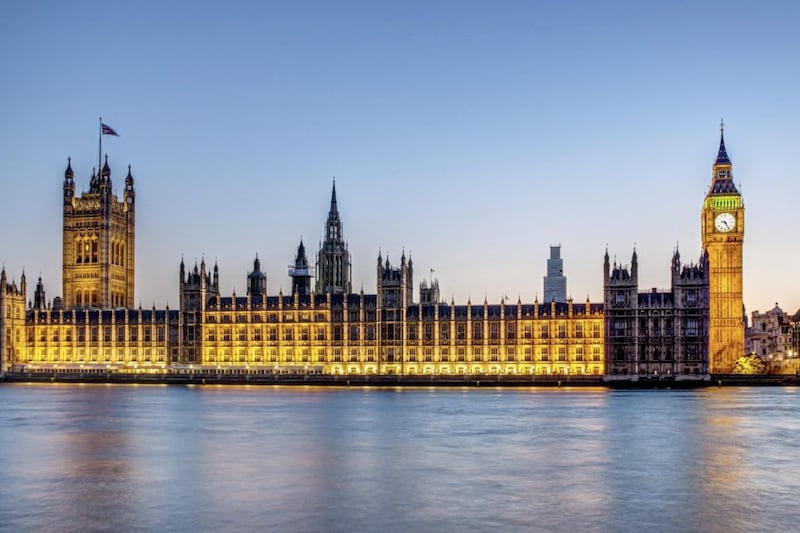Sinn Féin looks on course to secure a record number of seats in the next Westminster election and consolidate its position as the north's largest party, according to new polling.
The latest Irish News-Institute of Irish Studies-University of Liverpool survey forecasts republicans reversing 2019's electoral slippage and emerging with its strongest ever share of the vote in a general election.
Polling conducted earlier this month gives Sinn Féin 31% of the vote, some six points ahead of the DUP, which is expected to see a significant drop in support.
The party would be optimistic that it can regain Foyle from the SDLP, having quite publicly addressed issues at constituency level that were widely blamed for the substantial defeat in 2019.
Read More
- Stormont suspension fuels greater debate around Irish unity
- David McCann - Sinn Féin in strongest position but DUP steadily regaining support
- Peter Shirlow - Unionism needs to read the room
- Poll results may vary in a science that is far from exact
Sir Jeffrey Donaldson's party is forecast to secure a 25% vote share, which would be its worst Westminster election result for more than a decade.
In the 2019 general election, the DUP secured 30.6% of the vote but lost the seat of deputy leader Nigel Dodds in North Belfast.

If the outcome of the latest survey was mirrored at the polls it would represent the loss of almost one-third of the DUP's vote since its 2017 highpoint of 36%.
The Alliance Party would maintain its place as the region's third biggest party with a 15% share of the vote, the polling indicates, but would drop two points compared to 2019 when Stephen Farry became the first non-unionist to represent North Down in the House of Commons.
Read more:
John Manley: Latest poll shows Irish unity campaigners need to play the long game
John Manley: Sinn Féin makes strides while the DUP circles the wagons
Support for the Ulster Unionists is forecast to fall by one point, well within the pollsters' margin of error, but the SDLP is predicted to fall by six points compared with the last general election, to 9%.
The TUV, which did not stand in 2019, will emerge with a 5% vote share, the polling suggests.
Some 14% of those interviewed remain undecided on who they will support in an election which could take place any time before the end of January 2025.
The results of the survey, which was carried out between October 26 and November 3, are based on the assumption that all parties will run in every constituency. However, Westminster elections with their first-past-the-post system mean there is potential for pacts designed to thwart victory for the party that would ordinarily top the poll.

In North Belfast in 2019, for example, where Sinn Féin's John Finucane won the seat, only three parties ran with the SDLP and Ulster Unionists withdrawing from the race to increase the prospects of a respective nationalist or unionist candidate winning.
Irish News columnist David McCann said the polling "places pacts front and centre of the election debate on both sides of politics".
"The DUP will want to see the TUV out of the race altogether and have a free run in as many constituencies as possible. Sinn Féin's strong score will reassure but they will want to bank places like North Belfast in exchange for stepping aside in South Belfast for the SDLP," he said.
:: The polling was carried out between October 26 and November 3 and has a margin of error of +/- 3.1%.








